 Keith Olbermann of MSNBC obtained a copy of David Kuo's new bombshell of a book, Tempting Faith, that ought to make Christian evangelical heads spin:
Keith Olbermann of MSNBC obtained a copy of David Kuo's new bombshell of a book, Tempting Faith, that ought to make Christian evangelical heads spin:
More than five years after President Bush created the Office of Faith-Based Initiatives, the former second-in-command of that office is going public with an insider’s tell-all account that portrays an office used almost exclusively to win political points with both evangelical Christians and traditionally Democratic minorities.
The office’s primary mission, providing financial support to charities that serve the poor, never got the presidential support it needed to succeed, according to the book.
Who is David Kuo?
“Tempting Faith’s” author is David Kuo, who served as special assistant to the president from 2001 to 2003. A self-described conservative Christian, Kuo’s previous experience includes work for prominent conservatives including former Education Secretary and federal drug czar Bill Bennett and former Attorney General John Ashcroft. Kuo, who has complained publicly in the past about the funding shortfalls, goes several steps further in his new book.
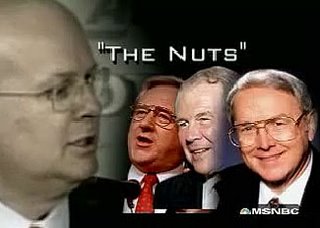 Some of the damaging revelations include RNC Chairman Ken Mehlman, "Bush's brain" and WH strategist, Karl Rove, and the president:
Some of the damaging revelations include RNC Chairman Ken Mehlman, "Bush's brain" and WH strategist, Karl Rove, and the president:
[Kuo] says some of the nation’s most prominent evangelical leaders were known in the office of presidential political strategist Karl Rove as “the nuts.”
“National Christian leaders received hugs and smiles in person and then were dismissed behind their backs and described as ‘ridiculous,’ ‘out of control,’ and just plain ‘goofy,’” Kuo writes.
More seriously, Kuo alleges that then-White House political affairs director Ken Mehlman knowingly participated in a scheme to use the office, and taxpayer funds, to mount ostensibly “nonpartisan” events that were, in reality, designed with the intent of mobilizing religious voters in 20 targeted races.
One of those "targeted races" included the hatchet job against Max Cleland of Georgia to ordain the rubber-stamp Republican Saxby Chambliss.
According to Kuo, “Ken loved the idea and gave us our marching orders.”
Among those marching orders, Kuo says, was Mehlman’s mandate to conceal the true nature of the events.
Kuo quotes Mehlman as saying, “… (I)t can’t come from the campaigns. That would make it look too political. It needs to come from the congressional offices. We’ll take care of that by having our guys call the office [of faith-based initiatives] to request the visit.”
Nineteen out of the 20 targeted races were won by Republicans, Kuo reports. The outreach was so extensive and so powerful in motivating not just conservative evangelicals, but also traditionally Democratic minorities, that Kuo attributes Bush’s 2004 Ohio victory “at least partially … to the conferences we had launched two years before.”
With the exception of one reporter from the Washington Post, Kuo says the media were oblivious to the political nature and impact of his office’s events, in part because so much of the debate centered on issues of separation of church and state.
In fact, the Bush administration often promoted the faith-based agenda by claiming that existing government regulations were too restrictive on religious organizations seeking to serve the public.
Substantiating that claim proved difficult, Kuo says. “Finding these examples became a huge priority.… If President Bush was making the world a better place for faith-based groups, we had to show it was really a bad place to begin with. But, in fact, it wasn’t that bad at all.”
In fact, when Bush asks Kuo how much money was being spent on “compassion” social programs, Kuo claims he discovered “we were actually spending about $20 million a year less on them than before he had taken office.”
The money that was appropriated and disbursed, however, often served a political agenda, Kuo claims.
“Many of the grant-winning organizations that rose to the top of the process were politically friendly to the administration,” he says.
Kuo describes the prejudice for Bush-supporting religious organizations:
More pointedly, Kuo quotes an unnamed member of the review panel charged with rating grant applications.
“But,” she said with a giggle, ‘When I saw one of those non-Christian groups in the set I was reviewing, I just stopped looking at them and gave them a zero … a lot of us did.’”
“Tempting Faith” contains several other controversial claims about Kuo’s office, the Bush White House and even the 1994 Republican revolution in Congress.
Many of those revelations and others will be the topic of discussion on Thursday night’s edition of “Countdown with Keith Olbermann.” (with added emphasis)
You can also view Keith Olbermann's video, which relates more details than what I've cited from the MSNBC story. Crooks and Liars (God love 'em) posted the transcript of last night's Olbermann broadcast. Excerpts:
...Now, as the [Mark] Foley cover-up has many evangelical Christians wondering whether the G.O.P. is really in sync with their values, "Tempting Faith" provides the answer: No way.
Kuo, citing one example after another of a White House that repeatedly uses evangelical Christians for their votes — while consistently giving them nothing in return;
A White House which routinely speaks of the nation's most famous evangelical leaders behind their backs, with contempt and derision.
Furthermore, Faith-Based Initiatives were not only stiffed on one public promise after another by Mr. Bush — the office itself was eventually forced to answer a higher calling: Electing Republican politicians.
Kuo's bottom line: the Bush White House is playing millions of American Christians for suckers.
[...]
So how does the Bush White House keep 'the nuts' turning out at the polls?
One way, regular conference calls with groups led by Pat Robertson, James Dobson, Ted Haggard, and radio hosts like Michael Reagan.
Kuo says, "Participants were asked to talk to their people about whatever issue was pending. Advice was solicited [but] that advice rarely went much further than the conference call. [T]he true purpose of these calls was to keep prominent social conservatives and their groups or audiences happy."
They do get some things from the Bush White House, like the National Day of Prayer, “another one of the eye-rolling Christian events,” Kuo says.
And “passes to be in the crowd greeting the president when he arrived on Air Force One or tickets for a speech he was giving in their hometown. Little trinkets like cufflinks or pens or pads of paper were passed out like business cards. Christian leaders could give them to their congregations or donors or friends to show just how influential they were. Making politically active Christians personally happy meant having to worry far less about the Christian political agenda.”
When cufflinks weren't enough, the White House played the Jesus card, reminding Christian leaders that, quote, “they knew the president's faith” and begging for patience.
And the Office of Faith-Based Initiatives?
According to Kuo, “White House staff didn't want to have anything to do with the Faith-Based Initiative because they didn't understand it any more than did congressional Republicans . They didn't lie awake at night trying to kill it. They simply didn 't care."
[...]
Kuo says they tried to prove their political value by turning the once-bipartisan faith-based initiatives into a political operation.
[...]
The Office was also, literally, a taxpayer-funded part of the Republican campaign machinery.
In 2002, Kuo says the office decided to "hold roundtable events for threatened incumbents with faith and community leaders … using the aura of our White House power to get a diverse group of faith and community leaders to a 'nonpartisan' event discussing how best to help poor people in their area."
White House Political Affairs director Ken Mehlman "loved the idea and gave us our marching orders. There were twenty targets." Including Saxby Chambliss in Georgia and John Shimkus in Illinois.
Mehlman devised a cover-up for the operation. He told Kuo, "It can't come from the campaigns. That would make it look too political. It needs to come from the congressional offices. We'll take care of that by having our guys call the office to request the visit."
Kuo explains, "this approach inoculated us against accusations that we were using religion and religious leaders to promote specific candidates."
[...]
By that time, Kuo had left the White House, concluding that "it was mocking the millions of faithful Christians who had put their trust and hope in the President and his administration. Bush knew his so-called compassion agenda was languishing and had no problem with that."
If you would question Mr. Kuo's credibility, you should know his former boss also quit the White House complaining in his one public interview that politics drove absolutely everything in the Bush administration. There is more, much more revealed in Tempting Faith… how Jack Kemp was tricked into sounding like a religious conservative without even knowing it; Jerry Falwell's astonishing behavior at the 9/11 Day of Remembrance and considerably more as our Countdown exclusive of Tempting Faith continues here tomorrow night.
I unfortunately don't get MSNBC via my cable TV subscription to watch tonight's broadcast but check Countdown with Keith Olbermann for more.
What a scandal! I've already pre-ordered Tempting Faith that releases Monday, Oct. 16. Should be a very, very interesting read and that's an understatement.
So when will congressional investigations begin? In January 2007? I hope so. Our taxes were looted and the public trust was exploited by the Bush presidency and the Republican-controlled Congress for partisan political purposes.
As for Christian evangelicals, will they realize they were scammed? Will they trust their theocon leaders, Robertson, Dobson, Perkins, et al, or will the popes of propaganda claim they were conned, too? More importantly, will the national press report this scandal?
I will say one thing: Keith Olbermann deserves an award for consistently reporting on the abuses of the Bush Administration. Props to Keith for continuing the legacy of Edward R. Murrow. I doubt, however, Bush will award Keith the Presidential Medal of Freedom. That's for sure.![]() Digg this story
Digg this story

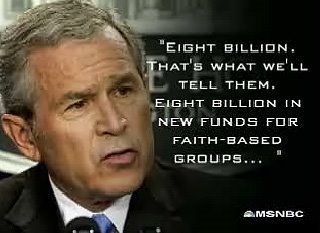
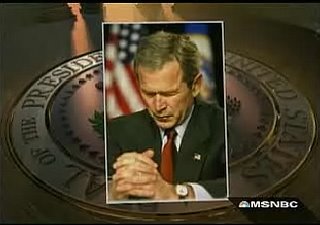







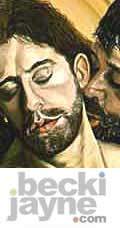
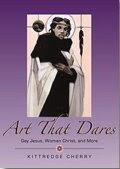
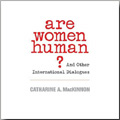
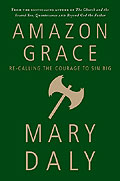
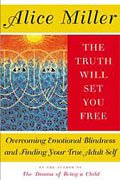


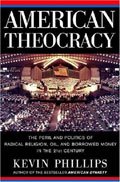





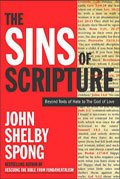

|